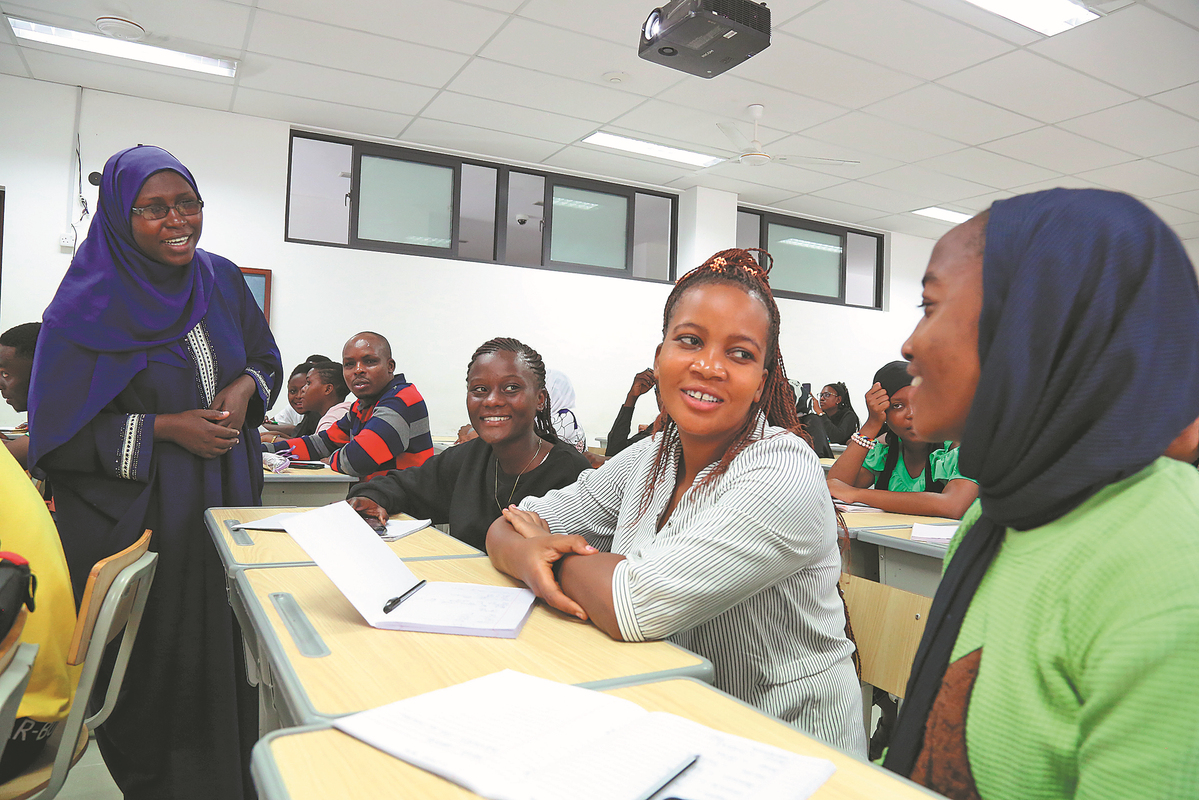
The friendship between China and Africa is set to grow deeper as Mandarin continues to gain popularity across the continent, enhancing people-to-people relationships.
Many African countries in recent years have incorporated the language into their school curricula, and the number of Confucius Institutes has increased across the continent.
To promote closer collaborations and the best practices in Chinese language instruction and culture, the Chinese International Education Foundation and the Confucius Institute at the University of Nairobi organized the inaugural joint conference of Confucius Institutes in Africa from Thursday to Saturday.
Aurelia Rono, principal secretary for Kenya's State Department for Parliamentary Affairs, said the conference was significant, happening in an era of increased global integration of economies and cultures.
She said China, with its rich history and unique development model rooted in its culture, has been a profound source of inspiration for Africa.
"The insights and experiences gained from China's development journey hold valuable lessons for our continent," Rono said.
"I commend the various institutes for serving as instrumental platforms in nurturing international relations between China and Africa, particularly in facilitating people-to-people exchanges."
By bridging language and cultural barriers, she said China and Africa will lay the foundation for building confidence in investment flows and advancing cultural tourism, which has surged in popularity in recent times.
Rono said Chinese language education in Kenya has had a profound impact in the past 20 years since the establishment of the first Confucius Institute in Africa at the University of Nairobi in 2005.
"We have witnessed tremendous growth in demand for the Chinese language, and therefore we need to train more teachers and experts to cater for the need," she said.
The Kenyan government has approved the inclusion of the Chinese language in the Competence-Based Curriculum, a move that Rono said has created the demand for more teachers and textbooks.
Stephen Kiama, vice-chancellor of the University of Nairobi, said the joint conference signified the commitment of China and Africa to dismantle cultural and language barriers.
He said Confucius Institutes play a pivotal role in fostering cross-cultural activities that are essential in creating a world of mutual respect and shared prosperity.
Zhong Yinghua, professor and chair of the International Society for Chinese Language Teaching, said the establishment of the first Confucius Institute in Africa at the University of Nairobi added an important platform for educational and cultural exchanges between China and Africa.
"Today, 20 years later, the Confucius Institute has taken root in the fertile soil, flourished, and grown into a towering tree," he said.





